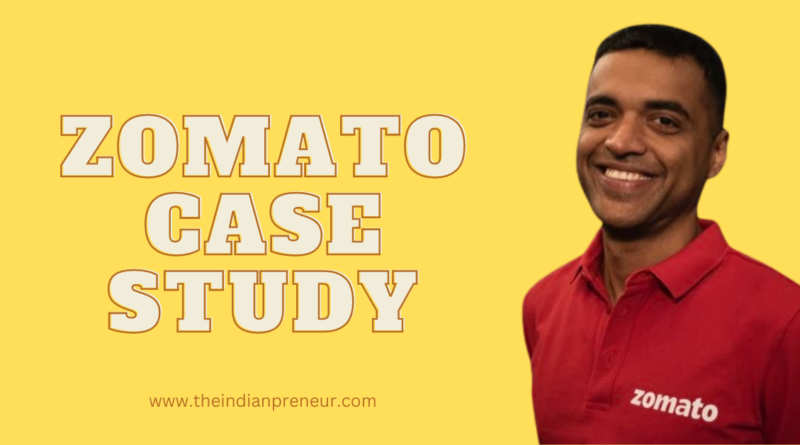Zomato Case Study: History, Valuation, Product, Services & Growth
Zomato is an Indian restaurant aggregator and food delivery company that was founded in 2008. Initially, the company started as a simple platform to help people discover new restaurants in their area, but over time it has evolved into a major player in the food delivery industry. Today, Zomato operates in more than 25 countries and has a user base of over 90 million.
Background:
Zomato was founded by Deepinder Goyal and Pankaj Chaddah in 2008. The idea for the platform came about when Goyal and Chaddah were working as management consultants and found themselves frustrated with the lack of good restaurant options in their area. They decided to create a platform that would allow users to discover new restaurants based on their location, cuisine, and price point.
Initially, Zomato operated as a simple directory of restaurants, but over time it began to add more features such as user reviews, ratings, and menus. In 2011, Zomato launched its mobile app, which allowed users to access its services on-the-go.
Zomato’s Business Model:
Zomato’s business model is based on a combination of restaurant discovery and food delivery. The company generates revenue through various means such as advertising, commissions on food orders, and subscription services.
Zomato has a two-sided platform that connects restaurants with customers. Restaurants can list their menus and prices on the platform, and customers can use the platform to discover new restaurants, read reviews, and place orders. When customers place orders through the platform, Zomato takes a commission on the sale.
Zomato also generates revenue through advertising. Restaurants can pay to have their listings promoted on the platform, which can help them reach more customers.
Finally, Zomato has introduced a subscription service called Zomato Gold, which gives users discounts on food and drinks at participating restaurants.
Challenges Faced by Zomato:
One of the biggest challenges faced by Zomato is the intense competition in the food delivery industry. Zomato competes with other major players such as Uber Eats, Swiggy, and DoorDash.
Zomato also faced challenges in expanding into new markets. In some countries, such as China and the United States, the company struggled to gain a foothold due to strong local competition.
Another challenge faced by Zomato was managing its operations during the COVID-19 pandemic. The pandemic led to a surge in demand for food delivery services, which put a strain on Zomato’s logistics and delivery infrastructure.
Successes of Zomato:
Despite these challenges, Zomato has achieved significant success in the food delivery industry. In 2021, Zomato went public with a valuation of over $9 billion, making it one of the most successful IPOs in Indian history.
Zomato has also expanded its operations to more than 25 countries, making it a truly global player in the food delivery industry.
In addition, Zomato has been successful in diversifying its revenue streams. The company’s subscription service, Zomato Gold, has been particularly successful, with over 1.4 million subscribers in India alone.
Conclusion:
Zomato’s success can be attributed to its innovative business model, its focus on customer experience, and its ability to adapt to changing market conditions. As the food delivery industry continues to grow and evolve, Zomato is well-positioned to continue its success and expand its reach into new markets.
